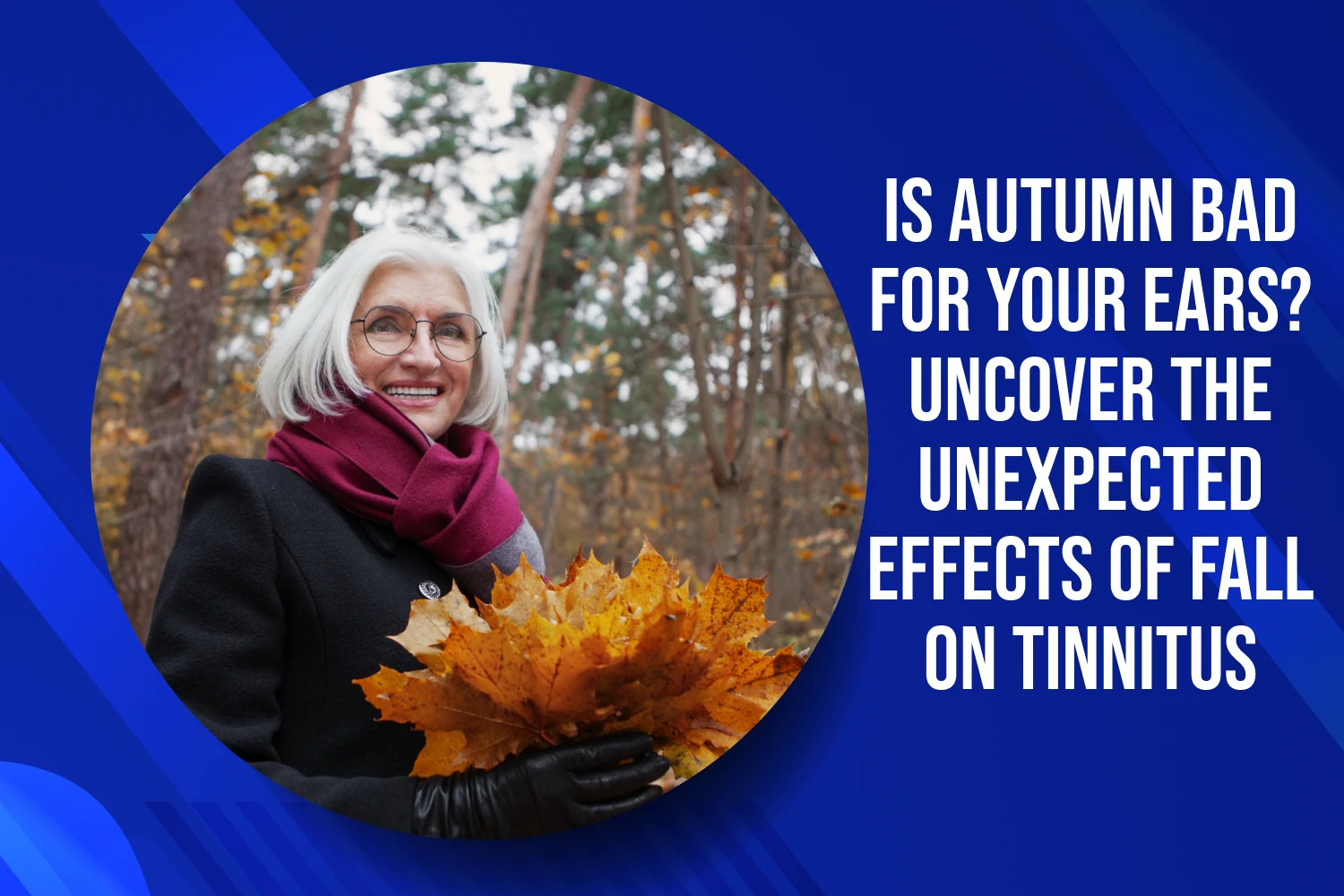Hey, it’s James Barrett here.
As I sit here sipping a warm spiced latte, watching the leaves gently fall in their dazzling array of reds and golds, I can’t help but think about the complexities of autumn.
This season is a favorite for many, but it presents its own set of challenges for those dealing with tinnitus.
Have you noticed an uptick in your tinnitus symptoms as we shift into fall? Let’s start a conversation—send me a personal note, and share your experiences.
While the visual splendor of autumn is undeniable, the season can also amplify the internal sounds for those of us dealing with tinnitus.
Here’s why this might be happening and some effective strategies to cope…
The Influence of Cold Weather Fronts

One less talked about aspect of autumn is the arrival of cold weather fronts. These not only chill the air but can also affect the pressure in our environment.
For those sensitive to such changes, these fronts can influence blood pressure in the ears, often resulting in heightened tinnitus symptoms.
This added internal soundtrack can be quite distracting amidst the beautiful rustling leaves.
Weather and Barometric Pressure
As summer transitions to fall, the significant drop in barometric pressure can affect our inner ears, which have delicate mechanics and are particularly sensitive to atmospheric changes.
This fluctuation can exacerbate tinnitus symptoms, making the condition more pronounced during colder months.
Earwax Buildup
Cold weather can cause earwax to harden, leading to blockages that may exacerbate tinnitus symptoms. This condition can create a feeling of fullness in the ear and temporary hearing loss, intensifying the perception of ringing or buzzing sounds.
Allergies and Tinnitus
Autumn also brings a host of allergens, including mold and ragweed pollen. These allergens can cause congestion and inflammation in the nasal passages and sinuses.
For those whose tinnitus is sensitive to sinus pressure, fall can prove particularly challenging.
The Cold and Flu Factor
Moreover, with the onset of cold and flu season, there’s an additional risk of ear blockages that can further intensify tinnitus symptoms. Staying healthy and avoiding these common autumn ailments is crucial for those with tinnitus.
Coping with Shorter Days
The shorter days contribute to Seasonal Affective Disorder (SAD), a type of depression that occurs during months with less sunlight. Stress and depression are closely linked with tinnitus. As your mood worsens, your tinnitus might sound louder or more intrusive.
I share this because I believe in empowering you with knowledge. Understanding how autumn can potentially trigger tinnitus flare-ups equips us to manage our symptoms better.
By preparing and adjusting our strategies to cope with these seasonal changes, we can mitigate the impact and continue to enjoy the beauty of fall.
Effective Strategies for Managing Tinnitus This Fall

To help manage your tinnitus during this challenging season, consider these practical strategies:
Stay Active: Regular exercise can help reduce stress and improve overall well-being, which may alleviate tinnitus symptoms. Even a simple walk outside while enjoying the crisp autumn air can do wonders.
Mindfulness Techniques: Incorporate meditation or deep-breathing exercises into your daily routine to help manage anxiety levels associated with seasonal changes.
Sound Masking: Utilize background noise—like nature sounds or soft music—to help drown out the ringing in your ears. This technique can be beneficial at night when quietness may make tinnitus more noticeable.
Limit Stimulants: Be mindful of your caffeine and alcohol intake; both can exacerbate tinnitus symptoms. Instead, opt for herbal teas or other soothing beverages that promote relaxation.
Protect Your Ears: As temperatures drop, consider wearing earmuffs or hats to keep your ears warm from harsh winds that could contribute to discomfort.
Manage Allergies: Stay on top of allergy medications and use saline nasal sprays to clear nasal passages during peak allergy seasons.
Cognitive Behavioral Therapy (CBT): This approach helps you reframe negative thoughts about tinnitus and develop healthier coping mechanisms.
Ready to turn over a new leaf this autumn and take control of your tinnitus symptoms?
I’ve prepared a special resource just for you…
Autumn Foods That Relieve Tinnitus: A Seasonal Nutritional Guide.
This detailed guide is packed with essential nutrients, autumn-friendly foods, and delicious recipes designed to help manage and potentially reduce tinnitus symptoms.
Download your free copy now and start experiencing the benefits of a tailored, tinnitus-friendly autumn diet today.
By preparing and adjusting our strategies to cope with these seasonal changes, we can mitigate the impact and continue to enjoy the beauty of fall.





